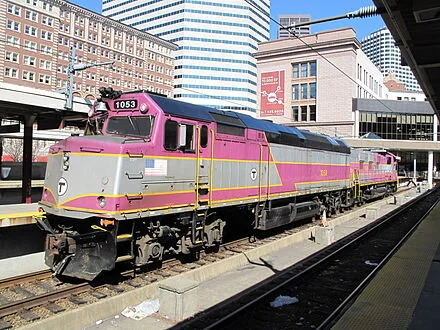MBTA revisioning its trains
MBTA commuter train at South Station, Boston
From Robert Whitcomb’s “Digital Diary,’’ in GoLocal24.com
The MBTA will soon be changing its commuter-train and subway and bus schedules to not only save money but also to reflect how the lives of so many of us have been permanently changed by the pandemic.
Rush-hour commuting has much diminished in the pandemic and won’t return to its pre-COVID levels. That’s because many people will continue to work at home post-pandemic. Employers have found that they can get at least as much productivity out of their people working remotely as they could in company offices, while saving a lot in office costs. (Unfortunately, some of those costs are thrown onto the employees.) Further, many, maybe most, employees dislike commuting, which has been infamously unpleasant in Greater Boston. But some folks like commuting, for the solitude and thinking time it can give them.
Laboring at home has eroded the old 9-5 job routines, meaning for many longer but more fragmented working hours – and making many homes less of a psychological refuge.
In any event, train and subway travel will be more spread out during the day, and more of it will be non-work-related.
Commonwealth Magazine reports that the plan is to spread MBTA service out across the day at “regular, often hourly intervals rather than concentrating it at morning and evening peak periods.’’ Say hourly or half-hourly rail service between Providence and Boston and hourly service between Worcester and Boston. And some have suggested extending commuter-rail lines from Boston, say all the way out to Pittsfield and Springfield, or to Bourne, on the edge of Cape Cod.
Happily, the agency is dropping a plan to cut off commuter rail service at 9 p.m. weekdays, instead it will continue service until 11 p.m., important to, for example, many people attending a game or other evening event in Boston.
Whatever, as travel opens up with fading of the pandemic, let’s hope that the public-transit cutbacks that it has caused can be mostly reversed, to avoid a massive increase in automobile traffic, much of it with one person per car.
To read more about the MBTA changes, please hit this link.
